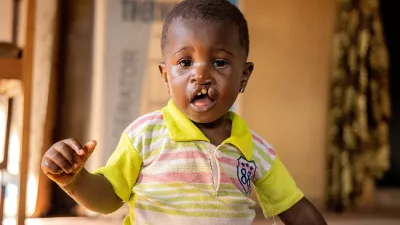News releases
Read the latest news from IHME about published research.New report tracks latest trends in global cardiovascular health
Cardiovascular disease (CVD) remains the leading cause of death across the globe, according to a new “almanac”-style special issue of the Journal of the American College of Cardiology (JACC).
The Lancet: One in eight deaths in 2019 linked to bacterial infections, the second leading cause of death globally
First global estimates of mortality involving 33 bacterial pathogens and 11 types of infection suggest they were associated with 7.7 million deaths in 2019.
The Lancet: New study shows lingering health disparities between Indonesia’s provinces
A new peer-reviewed systematic study analyzing hundreds of diseases, injuries, and risk factors in Indonesia shows that there were large disparities in health outcomes among provinces.
JAMA study: women twice as likely as men to develop long COVID
A new peer-reviewed paper published in JAMA reveals who’s more likely to develop long COVID months after initially falling ill from the virus.
New star rating system published in Nature Medicine helps people make informed decisions about diet and healthy habits
IHME analysis sheds new light on what we know and don’t know about what is good and bad for our health.
Smile Train: New study reveals half of malnutrition-related deaths in those with clefts could be prevented
Smile Train and IHME analyze the devastating impact of orofacial clefts over two decades (2000 - 2020).
WHO: At least 17 million people in the WHO European Region experienced long COVID in the first two years of the pandemic; millions may have to live with it for years to come
WHO/Europe urges countries to take post COVID-19 condition seriously by urgently investing in research, recovery, and rehabilitation.
The Lancet: Almost half of global cancer deaths are due to risk factors, with smoking, alcohol use, and high BMI the greatest contributors
Smoking, alcohol use, high BMI, and other known risk factors were responsible for nearly 4.45 million global cancer deaths in 2019, according to new research published in The Lancet using the Global Burden of Diseases, Injuries, and Risk Factors (GBD) 2019 study.
IHME study shows dramatic variation in health care spending across US states
The new analysis also sheds light on impact of Medicaid expansion on health care spending.
The Lancet: 160 million women worldwide have unmet contraception needs; new study reveals large differences in types of contraceptives used across regions and age groups
Estimates suggest that more than 160 million women and adolescents who wanted to avoid pregnancy were not using contraceptives in 2019, despite significant progress in the use of modern contraceptives globally over the previous 50 years.
Mukteshwari “Mukti” Bosco receives 2022 Roux Prize
Mrs. Bosco is recognized for her innovative and impactful use of Global Burden of Disease data to empower women and improve access to rural health care in India.
The Lancet: Alcohol consumption carries significant health risks and no benefits for young people; some older adults may benefit from drinking a small amount of alcohol
The new analysis from the Global Burden of Disease estimates that 1.34 billion people consumed harmful amounts of alcohol in 2020.
New Global Burden of Disease estimates show health inequalities in Norway have decreased over the past 30 years, but more work is needed to close the gap
From 1990 to 2019, Norway reduced inequality in disease burden; however, an examination at a more granular level shows inequalities still exist.
The Lancet: Improving road safety measures could save half a million lives every year worldwide
New global and country-level estimates suggest that routinely wearing helmets and seat-belts, obeying speed limits and avoiding drunk-driving could save between 347,000 and 540,000 lives worldwide every year.
The Lancet: Disparities in life expectancy persist among racial and ethnic groups across the US
New study offers the first comprehensive, county-level life expectancy estimates in the US and highlights important differences among racial and ethnic groups.














